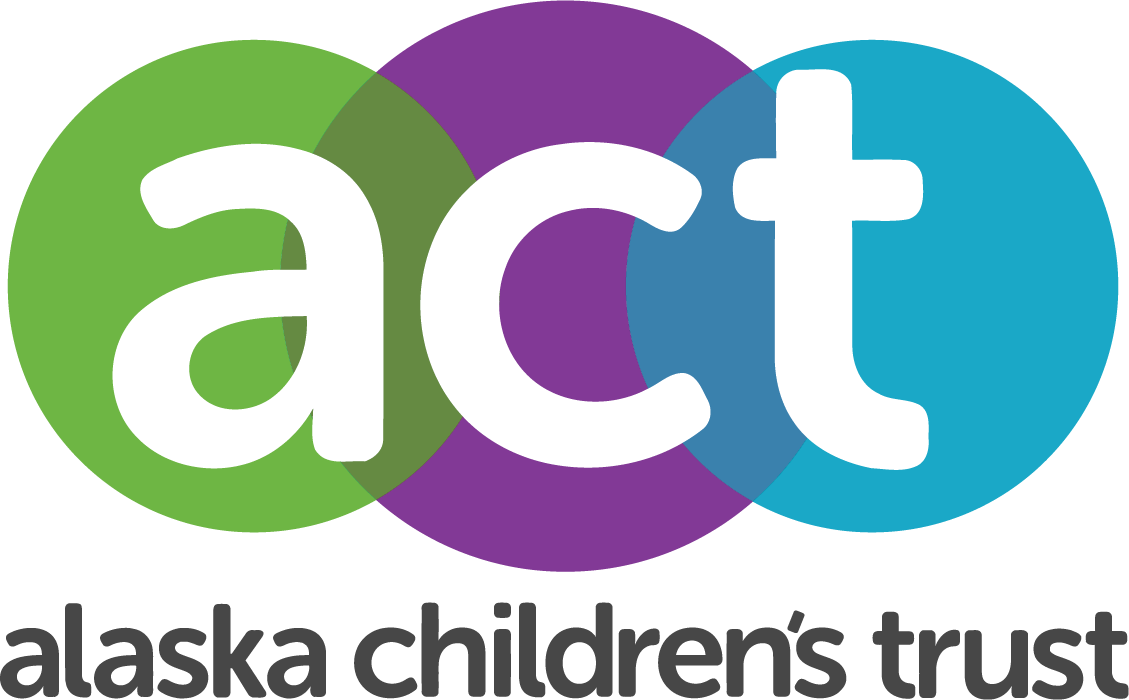Convening to Blaze a Trail for Trauma-Informed Care
This is an excerpted impact story from our 2020 Annual Report.
Joining together with like-minded organizations across Alaska “not only gave us a good gauge of where we were at in our trauma-informed efforts, but it also provided a space for us to share ideas,” says Cayla Pook of Youth Advocates of Sitka. The nonprofit is one of nine trailblazing organizations to join a first-of-its-kind program hosted by the Alaska Children’s Trust: Alaska Resilience Initiative’s (ARI) Learning Community on trauma-informed care. ARI is a program under the umbrella of Alaska Children’s Trust, and helps the Trust fulfill our role as a convener across Alaska, bringing together organizations that further our mission to end child abuse and neglect. We know that no one organization can tackle a mission so big, so we foster collaboration across the state. This year, we saw our Learning Community thrive despite the many hurdles of debuting a program focused on inter-agency communication during a pandemic.
The focus of the Learning Community was trauma-informed care, care that understands and considers an individual’s history of trauma. Trauma-informed care recognizes the symptoms of trauma and promotes healing and recovery, working to prevent re-traumatizing. Over the course of six months, the nine Learning Community organizations, our trauma-informed cohort, worked to explore how to apply trauma-informed practices to their work.
Guided by experienced trainer Addy Peters, the learning cohort assessed their individual organizational strengths and needs to develop implementation plans. Addy reflected on the training, noting that the participating agencies arrived with a good knowledge base of Adverse Childhood Experiences and the effects they cause, traumatic stress, and resilience. The key missing piece that the class was able to address: “What was previously lacking was the time and space to engage with this knowledge and think about implementation. You might have someone who goes to a lot of training, but it doesn’t go beyond that. This learning cohort gave people a chance to dig into things deeper for their individual organizations and across the state.”
The participant organizations included: Youth Advocates of Sitka, Bering Strait School District, ThrivAlaska (Fairbanks), Sitka Counseling, Campfire Anchorage, Goldbelt Heritage Foundation Juneau, Fairbanks Native Association's Headstart Program, Alaska Family Services (Mat-Su), and Alaska Center for Children and Adults (Fairbanks).
Convening together to grow and learn is critical to resilience work and bringing team members from each organization into one training was powerful for participants. KimAdelia, an Early Childhood Mental Health Coordinator at the Alaska Center for Children and Adults, spoke of the importance of collaborating with other Alaskans doing similar work, “It’s always good to come together and see who there is around the state that is doing the work. Sometimes we all feel isolated and most of the work can be pretty intense and heavy.”
While the cohort offered space to learn how to work better with clients, several participants also took away how to apply trauma-informed care with fellow team members. Cayla Pook’s team from Sitka “decided that peer support was where we needed to do the most work, which will allow us to be able to count on others in an open and caring way and ask for and offer help.” Cayla notes that the cohort has given Youth Advocates of Sitka a pathway forward and tangible steps to reach their goals.
Prior to the cohort, participating organizations had a spectrum of previous understanding about trauma-informed care. One participant shared, “I don’t think the organization did (have an understanding of trauma-informed care). The really neat thing was, once people were aware of it, there was a lot of interest in looking at the approach and how important it is for everyone.” Another attendee noted, “because we are already a trauma-informed agency, we were able to understand the content on a level that made the conversations that we were having relatively easy to translate to our team.”
Through efforts such as the Learning Community, we look to a future where every child lives in a community aware of trauma and resilience. By caring for the trauma of today’s children, we are not only helping heal them but preventing future generations from carrying the weight of unresolved trauma as well.

